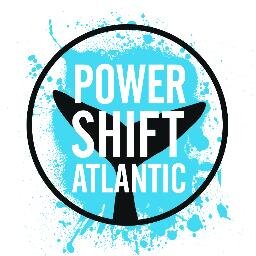A storm is heading for the east coast this week that rivals the strength and intensity of White Juan — a snowstorm in 2004 that ravaged Nova Scotia, effectively shutting down the province for more than a week. Four people died, and over $300 million in damage was done to provincial infrastructure. This snowstorm delivered five feet of snow in some areas — just six months after Hurricane Juan hit the same communities.
After Hurricane Juan in September 2003 and White Juan in February 2004, the Halifax Regional Municipality submitted bills totaling $19.9 million in damages to the federal government. In 2011, the city was still waiting on some $6 million.
These are what you might call 100 year storms. It’s no surprise that with accelerating climate warming, these storms are happening much more frequently, causing millions of dollars of damage and ravaging communities across the region.
Meanwhile, the federal and provincial governments are undoing environmental legislation, pushing through approvals for extreme energy extraction projects like the Energy East tar sands pipeline, continuing the colonization of Indigenous lands and pushing us further down a road of climate chaos.
We know that continued use of fossil fuels is driving climate change. We know that climate change is pillaging communities and continuing to take billions of dollars out of the pockets of the public to repair the physical and social damaged wreaked by climate change — usually with minimal success. We know that the solutions to climate change exist, and that they’re being stifled by the fossil fuel industry.
We know this fight is not about pollution. It’s about polluters.
At its root, the climate justice crisis is about an imbalance of decision-making power. The people and corporate interests making decisions about our energy future are undeniably removed from the impacts of their decisions. They’re profiting off of climate change and the economic and community suffering it causes for people in Canada and around the world. Corporate polluters are not accountable to the people.
With this understanding that fighting climate chaos is fighting huge corporate power, we can compare the climate justice movement to social movements in general, and we can take lessons from them. Recognizing the elements of strong social movements of the past, we can replicate their success.
We know there are a few key ingredients to a successful movement. Movements need to train their members to act, build solidarity across communities and create solutions that address the roots of the problems.
The civil rights movement’s power was in its trainings and teach ins that prepared people to recognize opportunities for action, and make those actions count. The Montgomery bus strikes wouldn’t have had such a huge impact across the country without a strong foundation built by years of trainings and teach ins.
The Quebec student movement wouldn’t have rallied 400,000 people in the streets of Montreal without a strong history of solidarity and relationships between different groups and organizations.
The Occupy Movement was successful in changing the public discourse around poverty and economic inequality by being honest and open to voices from different economic backgrounds, and giving priority to voices on the front lines of inequality.
These three elements — learning organizing and action skills, building solidarity and elevating voices from the front lines — are all driving ideas behind PowerShift, a multi-year movement building project to give the climate justice movement a fighting chance. We know building a strong movement is the only way to resist continued extreme energy extraction, continued rights violations, and continued degradation of our communities.
PowerShift Atlantic is happening from March 28-31st in Halifax, following PowerShift BC in October 2013. We’re building a network of skilled, knowledgeable and compassionate activists and organizers across the country who are joining the fight for a just and sustainable future. With this unique opportunity to have hundreds of young people from frontline and supportive communities in the same room, we’ll strategize the future of the resistance to Energy East, fracking, offshore drilling and more. We know that building our own power is the only way to tip the scales in favour of our communities and our climate.
Stay tuned this weekend to see what skills are shared, relationships are built, and what actions are taken at PowerShift Atlantic. Check us out on Facebook, Twitter and here on rabble.
Robin Tress is the PowerShift Coordinator.




